Text
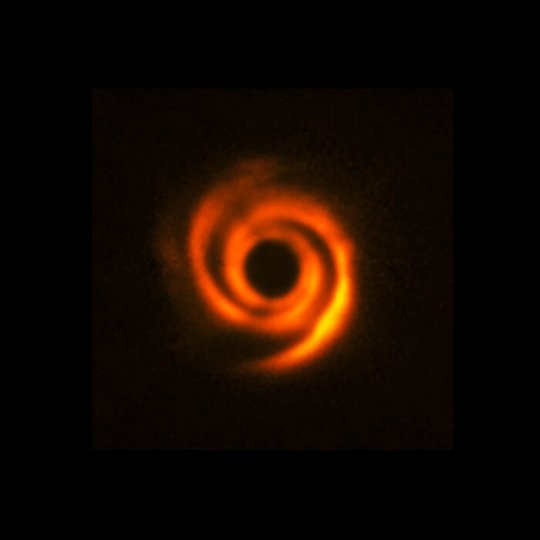
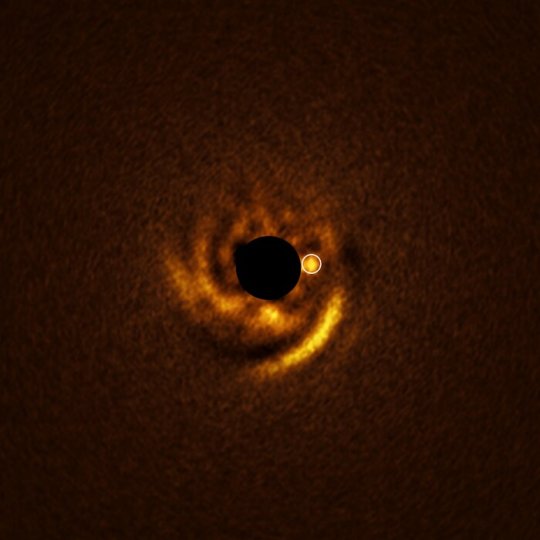
Astronomers witness newborn planet sculpting the dust around it
Astronomers may have caught a still-forming planet in action, carving out an intricate pattern in the gas and dust that surrounds its young host star. Using ESO’s Very Large Telescope (VLT), they observed a planetary disc with prominent spiral arms, finding clear signs of a planet nestled in its inner regions. This is the first time astronomers have detected a planet candidate embedded inside a disc spiral.
The potential planet-in-the-making was detected around the star HD 135344B, within a disc of gas and dust around it called a protoplanetary disc. The budding planet is estimated to be twice the size of Jupiter and as far from its host star as Neptune is from the Sun. It has been observed shaping its surroundings within the protoplanetary disc as it grows into a fully formed planet.
Protoplanetary discs have been observed around other young stars, and they often display intricate patterns, such as rings, gaps or spirals. Astronomers have long predicted that these structures are caused by baby planets, which sweep up material as they orbit around their parent star. But, until now, they had not caught one of these planetary sculptors in the act.
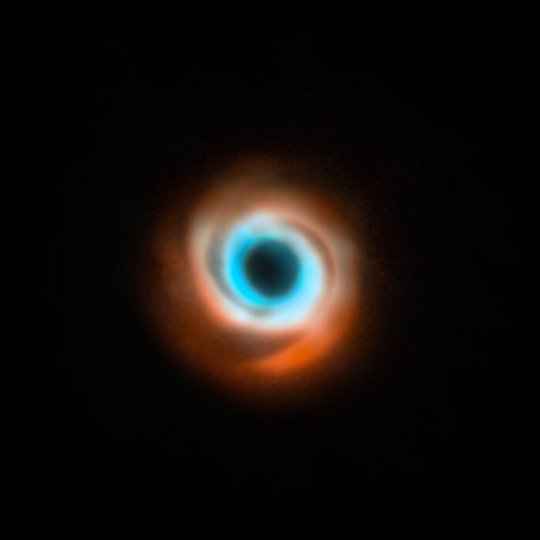
In the case of HD 135344B’s disc, swirling spiral arms had previously been detected by another team of astronomers using SPHERE (Spectro-Polarimetric High-contrast Exoplanet REsearch), an instrument on ESO’s VLT. However, none of the previous observations of this system found proof of a planet forming within the disc.
Now, with observations from the new VLT’s Enhanced Resolution Imager and Spectrograph (ERIS) instrument, the researchers say they may have found their prime suspect. The team spotted the planet candidate right at the base of one of the disc’s spiral arms, exactly where theory had predicted they might find the planet responsible for carving such a pattern.
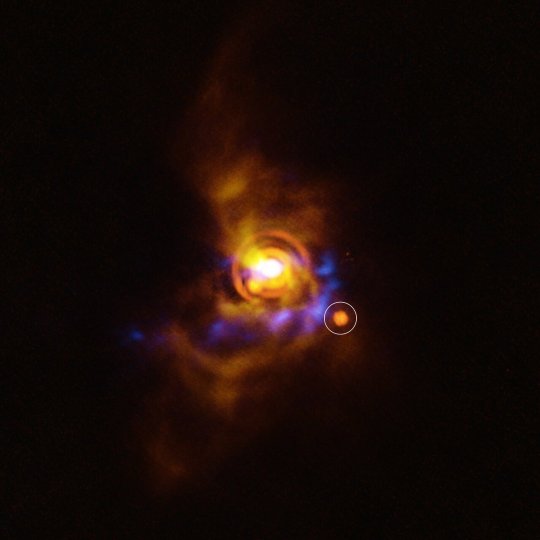
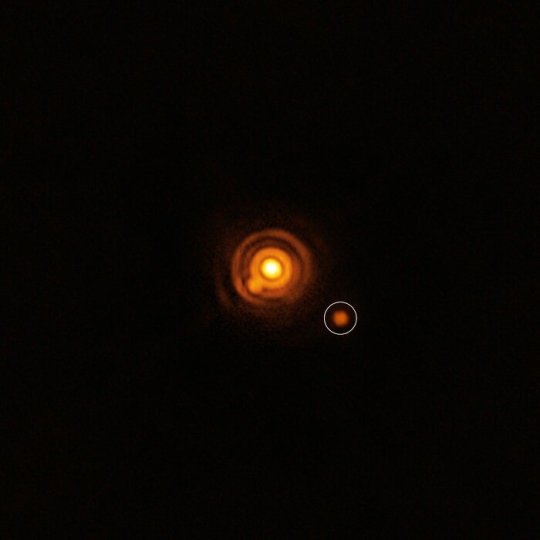
In a separate study, Anuroop Dasgupta, a doctoral researcher at ESO and at the Diego Portales University, and colleagues used the ERIS instrument to observe another young star, V960 Mon, which is located 5,342 light-years away in the constellation of Monoceros.
source: eso.org
813 notes
·
View notes
Text
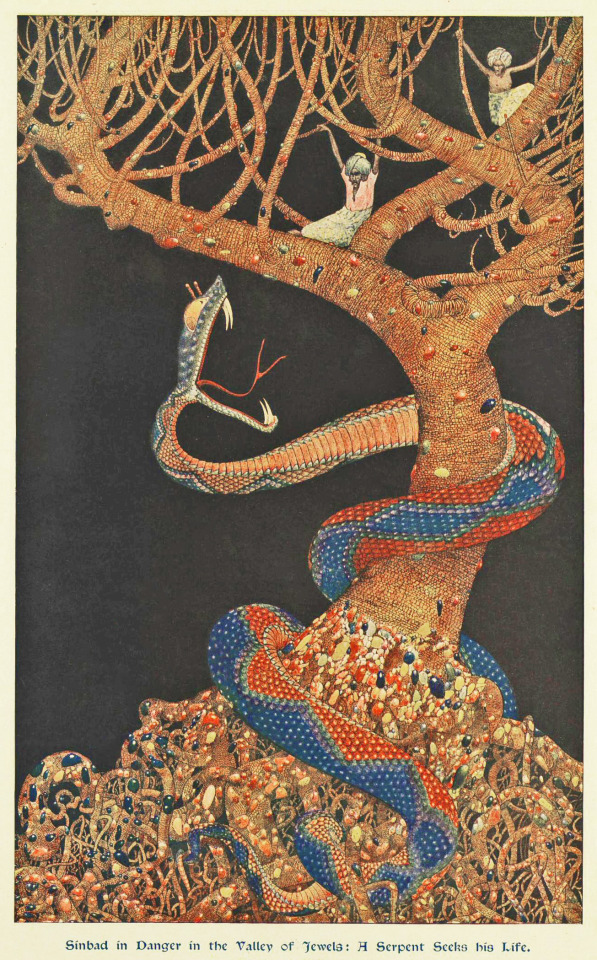
Arnold Mello, ''The Illustrated London News'' Christmas Number, 1922
"Sinbad in Danger in the Valley of Jewels: A Serpent Seeks his Life."
286 notes
·
View notes
Text
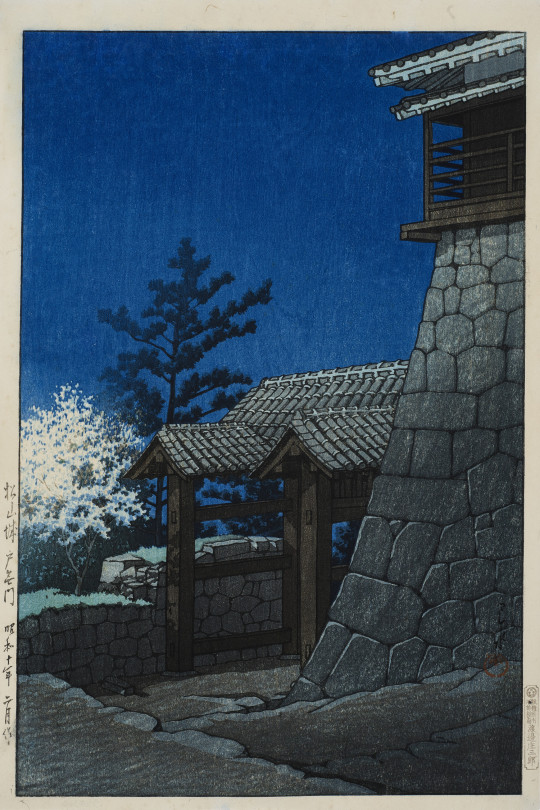
Matsuyamajo Tonashimon (Tonashi Gate, Matsuyama Castle) by Hasui Kawase
130 notes
·
View notes
Text

Artwork for 'Tom, Thom' by K. M. Ferebee, 2016 (Rovina Cai)
1K notes
·
View notes












